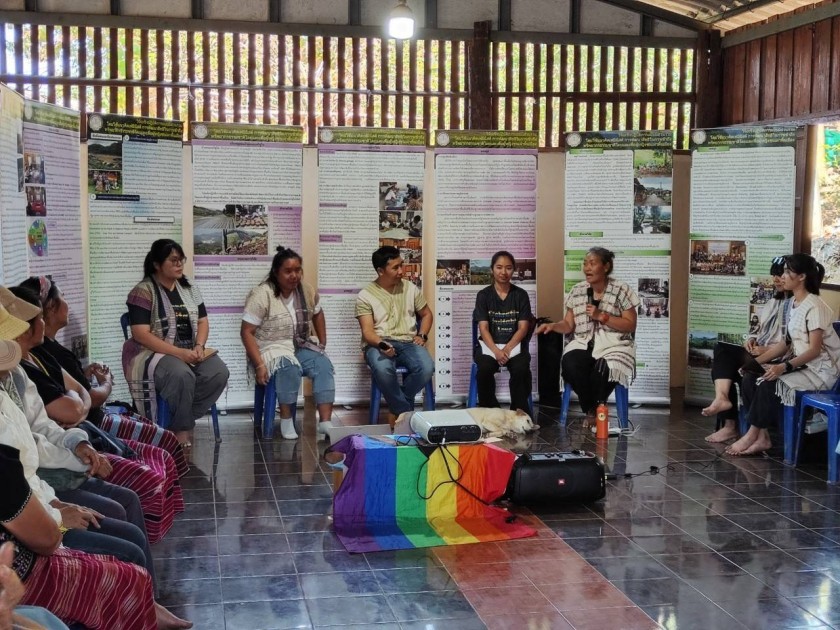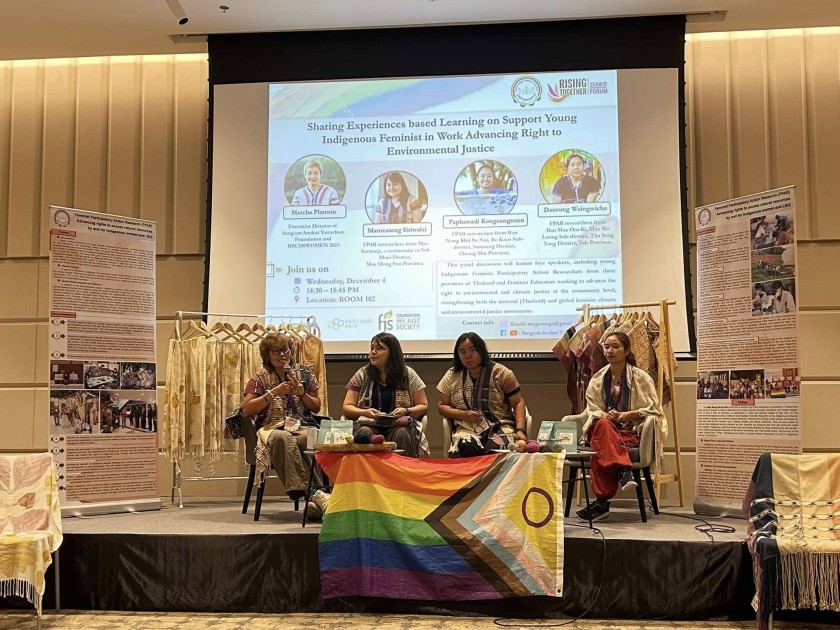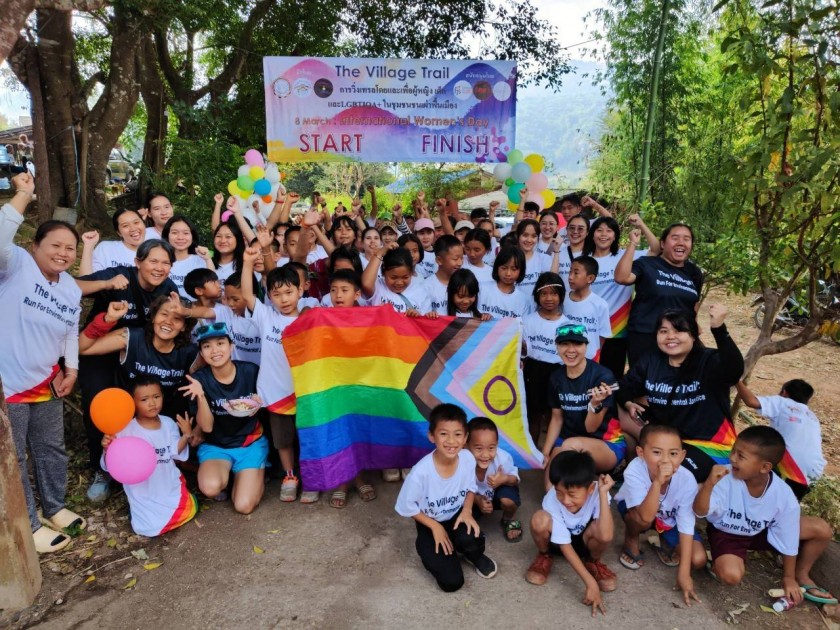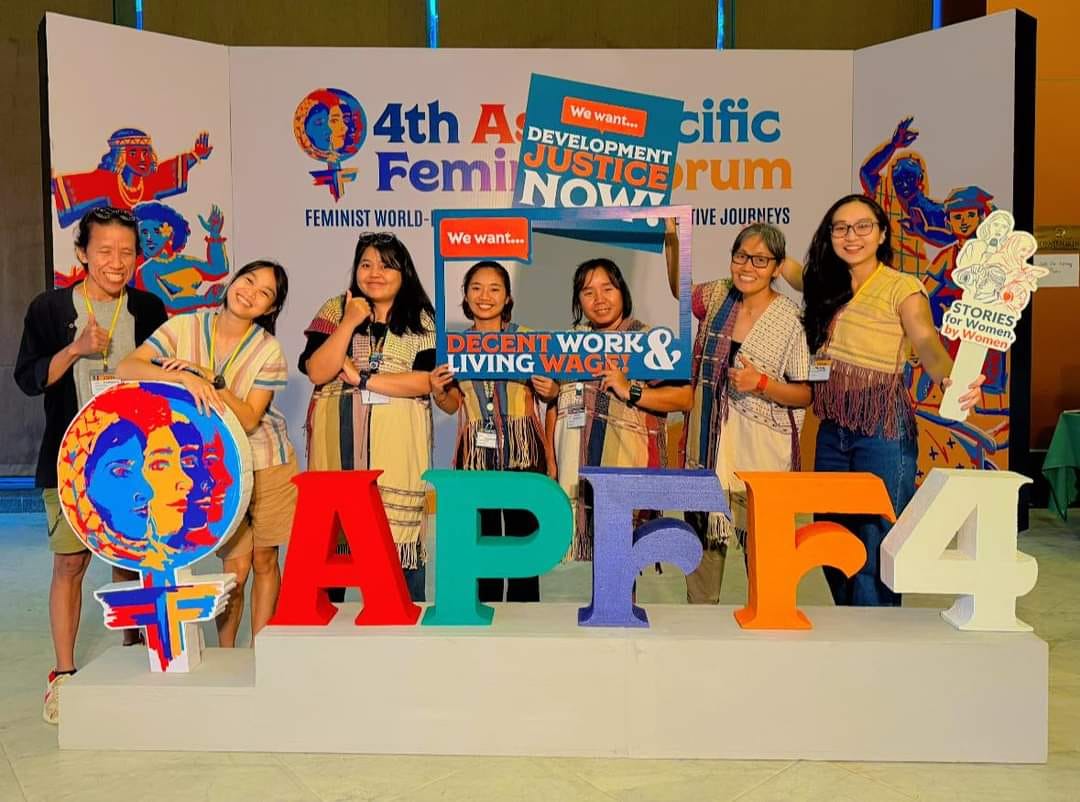On the occasion of World Environment Day, June 5th, Sangsan Anakot Yawachon Foundation raises the voices of Indigenous communities particularly indigenous women and LBQT+ through two powerful works: the short documentary “Water is LIFE” and the Feminist Participatory Action Research (FPAR) focused on the rights of Indigenous women and LBQ+ youth to access natural resources. These works aim to demand genuine environmental justice.
Watch the short documentary “Water is LIFE”: https://youtu.be/RIcgsAgitjc
Watch the FPAR documentary “Rights to Access Natural Resources”: https://youtu.be/WJuz1aggKCE

Key facts we must not ignore:
- Water is life, yet in the four Indigenous communities where we work — Nong Khrisue Nai (Chiang Mai), Mae Omki (Tak), Thiyaper and Mae Sam Laep (Mae Hong Son) — people suffer from severe shortages of clean water.
- Ecosystems will be seriously threatened if the Yuam water diversion project and large dams along the Salween River are built, combined with the ongoing impacts of climate change and policies that strip Indigenous peoples of their rights to manage and protect natural resources.
- Water quality analyses show that even water sourced from nature and boiled for drinking still contains high levels of limestone (calcium carbonate) and harmful bacteria. In Thiyaper community, a former mining site, Sangsan Anakot Yawachon found heavy metal contamination — particularly arsenic in drinking water at 0.15 mg/L, exceeding the safe limit of 0.01 mg/L by 15 times or 1500%.
- Structural injustices, such as the National Park Act (2019) and the Reserved Forest Act (2019), violate Indigenous peoples’ land rights, traditional livelihoods, and access to water.
- The encroachment of mining operations into Indigenous territories continues to severely impact community health and water sources, contributing to heavy metal pollution, deforestation, and the destruction of traditional ways of life. For example, in Thiyaper — even after mining operations ceased — tests still revealed arsenic contamination in drinking water far beyond safety standards.

FPAR-based demands by and for Indigenous women and LBQT+ youth:
- The state must officially recognize the existence of Indigenous peoples and repeal or amend laws that violate their rights to manage natural resources — particularly unjust forest laws.
- Guarantee equitable access to clean and safe water, especially in remote border areas.
- Halt all large-scale development projects that exclude community participation, such as the Yuam River diversion and Salween River dam projects.
- Support community-led research by and for Indigenous women and LBQT+ youth so those most affected can shape the solutions.
- Immediately cease all mining operations in Indigenous territories, revoke harmful concessions, and implement community-led restoration of damaged lands and water sources.
Why must we rise and resist?
Because land and water are not just resources — they are life for Indigenous communities.
Because denying access to land and water is equivalent to stripping away dignity, identity, and the future of entire communities.
Because we believe that true change begins by listening to the voices of Indigenous women and sexually diverse Indigenous women — those most affected and yet most marginalized in conversations about environmental justice.

Sangsan Anakot Yawachon Foundation
Sangsan Anakot Yawachon is a grassroots feminist organization working to advance environmental, economic, gender, and social justice for Indigenous communities — particularly Indigenous women, LBQT+, children, and youth. Our work is driven through four core programs:
- Human Rights and Feminist Education Programme
- Feminist Participatory Action Research Programme (FPAR)
- Economic Justice Programme
- Gender and Social Justice Programme
Contact:
Sangsan Anakot Yawachon Foundation
Email: sangsanngo@gmail.com | www.facebook.com/saydpthailand
www.facebook.com/tcijthai
Tags






